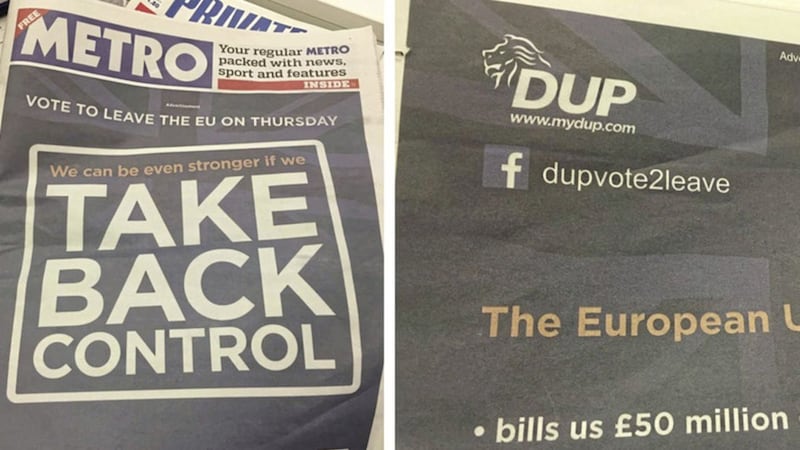Would someone explain to me why the DUP voted for Brexit. I have been on a bit of a mission for a couple of months to find someone who will tell me the logic of that decision. So far, I have got nowhere.
I am trying to find out why a political party would encourage its followers to vote for something that is going to disturb and even undermine some of its most fundamental policies.
I am intrigued by the rationale of walking into a political cavern where there are animals waiting to take bites out of you.Why would a political party espouse and promote something that is going to give life and energy to all the issues that it is against and fears? Politics is supposed to be a science or an art that has some built-in logic at its core. So, if your central tenet is the border and its retention, why promote something that puts the question of the existence of the border front and centre?
I vividly remember three o’clock on the morning of the Brexit referendum and the surprising Sunderland vote, confirming that the leave vote would win. I remember knowing at that moment that politics on these islands were forever changed. Changed to the extent that the constitutional issue was removed from the narrow context of the north and placed within the constitutional question of the United Kingdom and Ireland. Furthermore, it was clear that those questions would dominate future political agendas and yet the DUP had supported the very thing that would, at least, weaken the union with England, if not eventually destroy it. Superficially, the DUP were on the winning side but any political hack could see that the leading unionist party had campaigned and voted for something that undermined their most fundamental policy.
The incongruity was always going to come to the fore and it first showed its weird and wonderful head last week when Arlene Foster said that ‘there is a real need for us not to have a border down the middle of the Irish Sea because that would cause incredible difficulty for our trade and businesses’. She said that a customs border at the sea ports was a red line for the DUP.
Around the same time Charlie Flanagan, the Irish foreign minister, was saying that he didn’t want to see any custom posts on the island of Ireland. It is fairly obvious that will be a red line for the Irish government. The difference is that Charlie was going around Ireland and England for months before the referendum, warning people that Brexit would create chaos while, at the same time, the DUP was advocating for it here in the north and using someone else’s money to promote it in London. It was always likely that the Irish Sea would be the only viable and sustainable customs post and if that is Arlene’s red line and the Irish have a contradictory red line, it is in a context where the Irish government will be in the room making their own arguments while the DUP will have to put a lot of their faith and prospects into the hands of Theresa May.
I know where my money will be on that one.
Brexit has also put purpose and energy into the demand for a border poll in Ireland and an independence referendum in Scotland. These issues may not find traction immediately but neither are they and their supporters going to disappear into the ether. From a unionist perspective, the least damage that can come from Brexit is the creation of large and serious minorities with agendas that are antagonistic to their cause.
If the reason for supporting Brexit came solely from a ‘wrap the union jack round me’ instinct to satisfy a gut feeling or from an esoteric belief that world trade and commerce will bend the knee to the greatness of Britain, then the DUP gambled the future of the union on emotion rather than on sound politics. That is scary for unionism but equally scary for nationalism.
It is bad news for all of us if unionism is not developing a cadre of politicians who are skilled in the art of politics and who can distinguish between the pragmatic, the probable and the inevitable. In the near future, both communities will have to revisit some very big constitutional issues. It would be best and easier done with men and women who understand politics.









